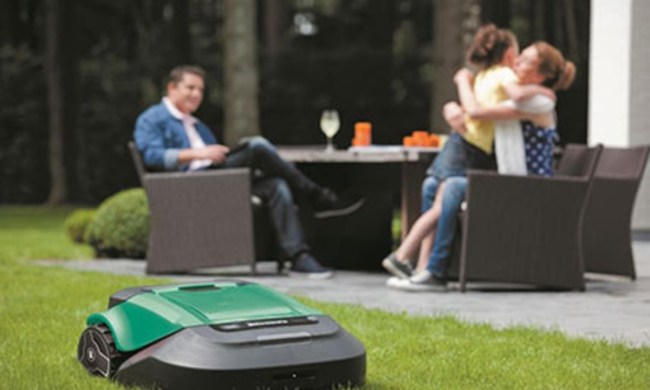The gloopy-looking gunk oozing from the robots’ nozzles is actually a proprietary liquid material created especially for Reebok by BASF. The “Liquid Factory” shoe-making process is set to be employed at a new sneaker manufacturing location opening in Lincoln, Rhode Island, early next year.
The innovative layering technique will be used to “create totally unique footwear, without the use of traditional molds,” the company said this week.
With his job titled listed as “head of future,” it’s little surprise that Reebok’s Bill McInnis has little time for sneaker-building techniques of the past.
“Footwear manufacturing hasn’t dramatically changed over the last 30 years,” McInnis said in a release. “Every shoe, from every brand is created using molds – an expensive, time-consuming process. With Liquid Factory, we wanted to fundamentally change the way that shoes are made, creating a new method to manufacture shoes without molds. This opens up brand new possibilities both for what we can create, and the speed with which we can create it.”

The former NASA engineer said that the new process allowed his team to “program robots to create the entire shoe outsole, without molds, by drawing in layers with a high-energy liquid material to create the first ever energy-return outsole, which performs dramatically better than a typical rubber outsole.”
He add that the Liquid Factory process also creates “a unique fit system that stretches and molds around the foot, providing a three-dimensional fit.”
Depending on your outlook, the result is either an awesome-looking shoe guaranteed to delight even the fussiest of feet, or a bonkers design apparently the work of a highly imaginative ketchup artist. Either way, it’s certainly distinctive.
To promote its robotic 3D-drawing technology, the Adidas-owned company has created a limited-edition Reebok Liquid Speed sneaker. Three hundred pairs of the U.S.-made shoe are available, each costing $190. Would you put them on your feet?


